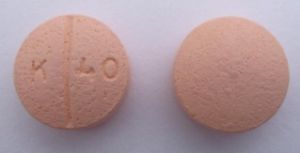Benzphetamine Interactions
There are 234 drugs known to interact with benzphetamine, along with 15 disease interactions, and 3 alcohol/food interactions. Of the total drug interactions, 44 are major, 185 are moderate, and 5 are minor.
- View all 234 medications that may interact with benzphetamine
- View benzphetamine alcohol/food interactions (3)
- View benzphetamine disease interactions (15)
Most frequently checked interactions
View interaction reports for benzphetamine and the medicines listed below.
- Adderall (amphetamine / dextroamphetamine)
- Adipex-P (phentermine)
- Ambien (zolpidem)
- Aspirin Low Strength (aspirin)
- Ativan (lorazepam)
- Belviq (lorcaserin)
- Benadryl (diphenhydramine)
- Bontril PDM (phendimetrazine)
- Bontril Slow Release (phendimetrazine)
- Contrave (bupropion / naltrexone)
- Crestor (rosuvastatin)
- Evekeo (amphetamine)
- Fioricet (acetaminophen / butalbital / caffeine)
- Imitrex (sumatriptan)
- Klonopin (clonazepam)
- Lexapro (escitalopram)
- Linzess (linaclotide)
- Prozac (fluoxetine)
- Qsymia (phentermine / topiramate)
- Saxenda (liraglutide)
- Singulair (montelukast)
- Ubrelvy (ubrogepant)
- Ventolin HFA (albuterol)
- Viibryd (vilazodone)
- Vitamin B Complex 100 (multivitamin)
- Vitamin C (ascorbic acid)
- Vitamin D3 (cholecalciferol)
- Vyvanse (lisdexamfetamine)
- Xanax (alprazolam)
- Zoloft (sertraline)
Benzphetamine alcohol/food interactions
There are 3 alcohol/food interactions with benzphetamine.
Benzphetamine disease interactions
There are 15 disease interactions with benzphetamine which include:
- cardiovascular
- glaucoma
- agitation
- cardiac disease
- glaucoma
- hypertension
- psychiatric disorders
- pulmonary hypertension
- substance abuse
- tics
- diabetes
- liver disease
- renal dysfunction
- seizure disorders
- diabetics
More about benzphetamine
- benzphetamine consumer information
- Compare alternatives
- Pricing & coupons
- Reviews (20)
- Drug images
- Side effects
- Dosage information
- During pregnancy
- Drug class: anorexiants
- En español
Related treatment guides
Drug Interaction Classification
| Highly clinically significant. Avoid combinations; the risk of the interaction outweighs the benefit. | |
| Moderately clinically significant. Usually avoid combinations; use it only under special circumstances. | |
| Minimally clinically significant. Minimize risk; assess risk and consider an alternative drug, take steps to circumvent the interaction risk and/or institute a monitoring plan. | |
| No interaction information available. |
Further information
Always consult your healthcare provider to ensure the information displayed on this page applies to your personal circumstances.


